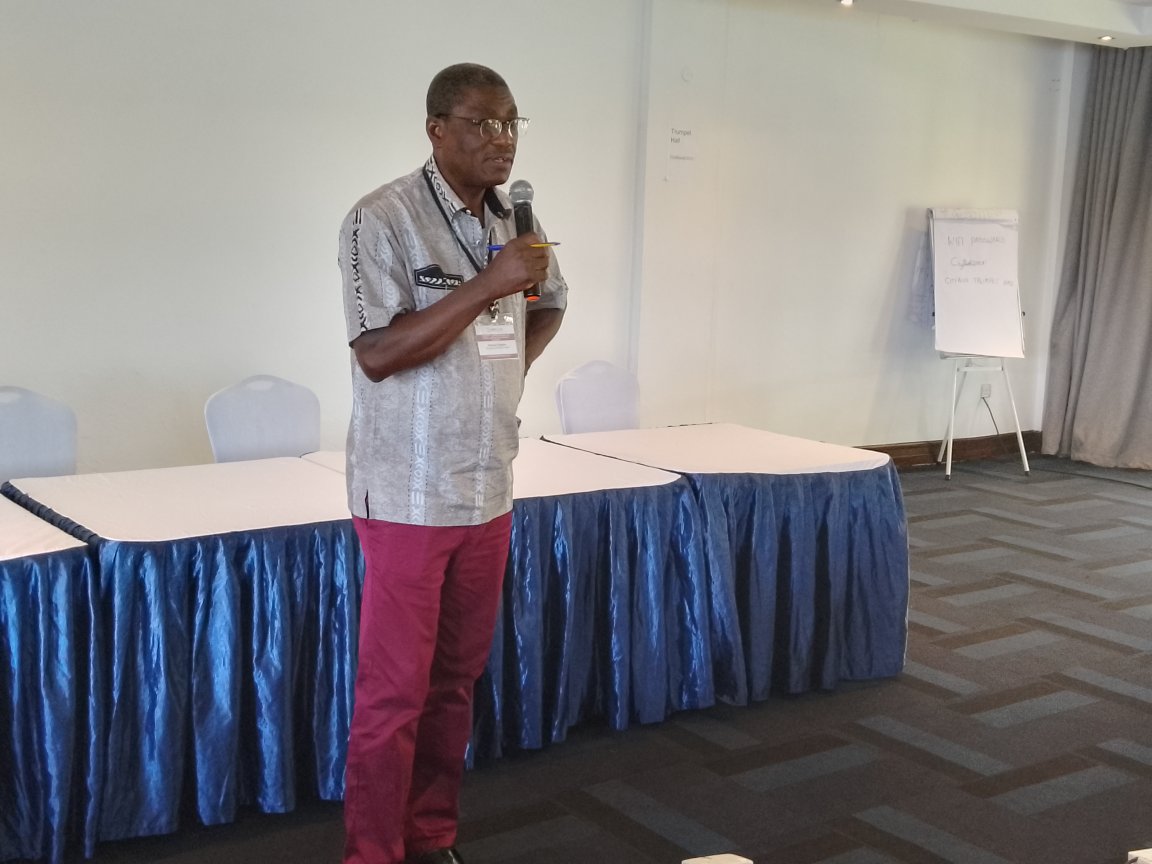|
Getting your Trinity Audio player ready…
|
MOMBASA, KENYA – Dr. Emmanuel Okogbenin, the African Agricultural Technology Foundation (AATF) director for programme development and commercialization has urged proper communication and advocacy to influence the adoption of biotechnology and complementary innovative technologies like genome editing so as to catalyse productivity transformation and improve food system resilience in Africa.
He made the remarks in his presentation on communication and advocacy during a multi-stakeholder strategic workshop on genome editing that was organised by the African Union Development Agency (AUDA-NEPAD) in Kenya’s coastal city of Mombasa from 16 to 20 October 2023.
Dr. Okogbenin noted that there is often a weakness in communications efforts that focus mainly on the technical paradigm while downplaying or ignoring the psychological and sociological paradigms.
“It is instructive that the other two paradigms (psychological, and sociological) are very powerful shapers of perception, and have a much larger multiplier effect on information diffusion. This can inform the use of advocates, community leaders, influencers, and social networks as dissemination nodes. For Biotech communications, effective messaging can build trust if it reflects this appreciation of the dimensions of perception.
He said AATF’s experience with transgenic Bt Maize (TELA Maize) and Bt Cowpea (PBR Cowpea) shows that messaging frameworks must be ready to re-focus to address themes as they evolve.
“Once clarity is achieved on the public and environmental safety of a technology (like the case of GMOs), it is highly likely that the societal/political trend will move onto other sub-themes including, economic benefits, seed/food sovereignty, and benefits sharing, among others. Critical question: Is your messaging framework ready for these shifts when they happen?
“There is a lot to gain in adopting communications that give audiences a sense of agency through responsive, timely, and honest interactions. Acknowledging the natural tendency for risk aversion and clear communication of benefits and trade-offs is critical,” he added.
The Plant Breeder/Molecular Geneticist said for Biotech communications and Advocacy, perceived competence, mandate, and credibility of the regulatory agencies play a critical role in bolstering public support.
“Partnerships in communications, branding, and messaging that strengthen this image are a good investment. Empowering national regulators to affirm this image (i.e., Nationally mandated, competent authority, informed by international best practice, committed to national interests). AATF’s experience in Nigeria, Kenya, South Africa, and Ethiopia has helped refine these insights. The more competent, credible, and trusted voices, the better for biotech communication.
“In the context of knowledge management for biotechnology adoption, effective public participation can facilitate collective intelligence and inclusiveness, and help overcome the ‘’ownership’’ gap in biotech products and solutions discourse. Robust and sustained partnership with the media is crucial for building ‘mindshare’ in biotech conversations. An empowered and confident media helps shape narratives.
“Media partnerships need to be robust enough to follow the product pathways from product development to full commercialization, acknowledging challenges and celebrating milestones. The media is also a useful ‘marketplace’ for monitoring public perceptions and gauging the support, concerns, and information needs of the public.”
To demonstrate how genome editing is optimizing agriculture in Africa, John Odipio of the National Agricultural Research Organization (NARO) of Uganda talked about the cassava project in his country.
He alluded to a number of strategies for developing new cassava varieties. These include crossbreeding, mutation, and transgenic breeding as well as genome editing.
“Precise gene editing can produce glyphosate-tolerant cassava like conventional transgenic approaches. CRISPR/Cas9 is a useful tool for engineering suitable starch properties for different food products and commercial processing. The application of biotechnology/gene editing develops nutritious, climate-smart, and resilient African crops (e.g. cassava, maize, and rice) and animals (pigs, chicken, cows),” he said.
Mrs. Florence Nazare, the Head of AUDA-NEPAD’s Centres of Excellence Knowledge Management and Programme Evaluation Directorate said there is a need for partnerships and emphasised that strong coalitions of credible, and trusted voices can support communications work in biotech like genome editing both at the national and continental levels.
